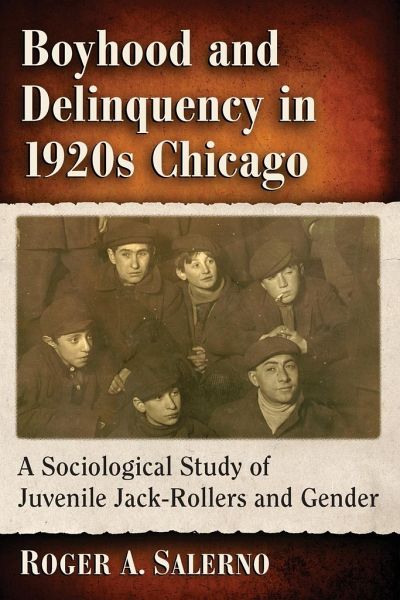
Boyhood and Delinquency in 1920s Chicago
A Sociological Study of Juvenile Jack-Rollers and Gender
Versandkostenfrei!
Versandfertig in 1-2 Wochen
34,99 €
inkl. MwSt.

PAYBACK Punkte
17 °P sammeln!
Developed by progressive social scientists in the early 20th century, the juvenile justice system in the U.S. consisted of courts and corrections aimed at reforming disorderly youth. Poor immigrant boys, roaming the streets unsupervised, were its usual subjects. Psychologists and sociologists equated maleness with innate insensitivity, lack of self-control and violent tendencies. In the belief that proper discipline would save the troubled boys from ""feminization"" and help control their destructive impulses, a rigid masculine authority--challenged by women activists--began to be imposed by a...
Developed by progressive social scientists in the early 20th century, the juvenile justice system in the U.S. consisted of courts and corrections aimed at reforming disorderly youth. Poor immigrant boys, roaming the streets unsupervised, were its usual subjects. Psychologists and sociologists equated maleness with innate insensitivity, lack of self-control and violent tendencies. In the belief that proper discipline would save the troubled boys from ""feminization"" and help control their destructive impulses, a rigid masculine authority--challenged by women activists--began to be imposed by a reactionary patriarchal system. This study of delinquency in 1920s Chicago examines the lives of boys, many of whom spent their early years incarcerated, who survived by embracing criminal personas. Predatory masculinity emerges as a source of personal struggle, and as the basis for an array of contemporary social problems, including mass violence and suicide.













